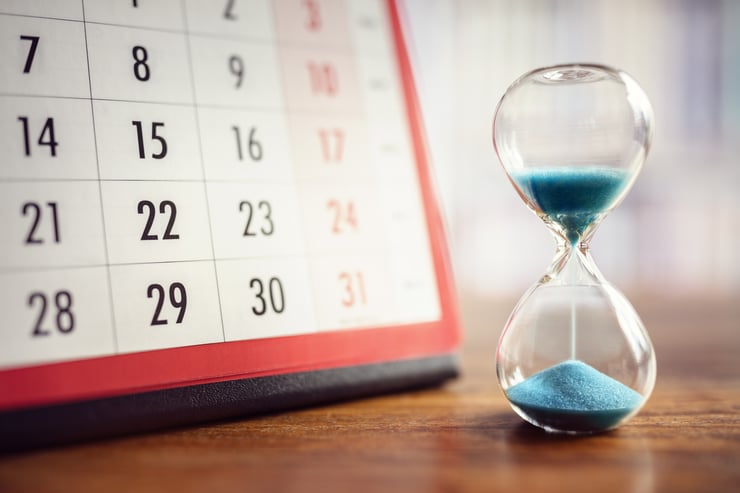You’ve just spent a couple of hours customizing your resume and cover letter. Then triple-checked ‘em against the job ad requirements before finally hitting “send”. Now the waiting game begins. How long will it take to hear from this job application? You are now wondering. We’ve got a data-backed answer for you.
How Long Does It Take to Hear Back From a Job Application?
The hiring timeline depends a lot on the company size. Bigger enterprises, federal agencies, and educational institutions have longer assessment processes. You should expect to hear from them in 3-4 weeks after applying for a job. If you are applying to a smaller private company or a multi-national tech firm, you should get a reply on your application in 1-2 weeks.
Here’s a quick chart, comparing candidate response times about the job application status at different organizations:
| Employer | Average response time |
| Spotify | 1-2 weeks on average |
| Canva | 48 hours (after an interview) |
| Cornell University | 4-6 weeks |
| US Department of Veteran Affairs | 60-120 days |
But as the pace of work has increased, many employers are speeding up their recruiting cycles to better meet the job seekers’ expectations. According to a 2022 survey from the Greenhouse recruiting platform, almost 58% of job applicants expect to hear back on the status of their job applications in one week or less.
Few companies could muster this speed of response a couple of years ago, but things are getting better. Data from Jobvite suggests that 28% of employers are committed to improving time-to-hire this year. This shouldn’t be a surprise given the ongoing talent shortages. A wave of rage quitting, dubbed the “Great Resignation”, left many companies short of essential stuff. At the same time, rapid rates of digitization make the demand for IT talent (and people with high digital literacy skills in general) sky-high.
So employers are finally addressing the inefficiencies in their hiring process to make it faster and more delightful for candidates.
A recent survey found that 70% of job seekers will abandon a job application form if it takes more than 15 minutes to complete. So many employers are cutting down on the number of required fields and making certain things like cover letters “optional” for some positions.
They are also increasingly relying on software to streamline applications, but not the dreaded application tracking systems (ATS). On the contrary, some now use conversational artificial intelligence (AI) apps and algorithms to automatically process the bulk of job applications for low- and mid-wage workers — warehouse workers, drivers, call center workers, moving specialists, delivery people, etc. — at fast speeds.
Watch this video to see how you can optimize your resume for ATS:
For example, UPS recently switches to such “instant hiring” solution. They use automated hiring software to pre-qualify candidates…then issue immediate offers. The company hired over 70% of drivers’ helpers and package handlers this way. UPS has shortened the hiring process for entry-level and seasonal jobs from 3 weeks to roughly 30 minutes. They also significantly boosted its conversion of applicants to employees without increasing turnover rates.
Home Depot is now following in its footsteps. The company announced hiring plans for over 100,000 sales associates…and they promise to make offers to suitable candidates’ within one day of applying.
Why It Takes Long To Hear Back After a Job Application
That being said: not all employers fast-tracking hiring decisions. On average, it still takes over 2 weeks to hear back from a job application in many industries or even longer. Why is it so? Because companies often don’t have enough HR staff to ensure fast response rates.
A recent survey by HackerRank found one recruiter in companies with less than 1,000 people is usually responsible for 8 consequent requisitions at any time. The figure rises to 12 in companies with 1,000+ people.
The survey also estimates that recruiters handling 20+ concurrent hires at once have an average time-to-hire of 45 days. While those with 1-4 concurrent requisitions need just 29 days to find, pre-qualify, interview, and make an offer to the best candidate.
Apart from internal process inefficiencies and lack of staff, the nature of the job itself also dictates the length of the hiring process. Glassdoor puts the national average time-to-offer at 23.8 days. Practically, however, the hiring times vary a lot by industry:
- Government – 53.8 days
- Nonprofit – 25 days
- Restaurants – 10.2 days
- Beauty and fitness – 13.2 days
Hiring for specialized possessions, especially those requiring special skills and licenses often takes more time as companies need to conduct a background check, plus take you through multiple types of interviews to ensure your “fit”.
What To Do While Your Are Waiting to Hear Back from a Job Application?
Don’t stay idle. If you are pressed with your job timing, keep applying to other options. Customize your resume for another position, update it with some extra power words, or practice your answers to common job interview questions.
Should I Follow Up On My Job Application Status?
Most employers usually add this small disclaimer of “we only reply to successful applicants”. This means you may never hear back on your job application and receive a formal rejection. If you’ve waited for at least 4 weeks, you can follow up on your application status. But don’t get too optimistic about hearing back.
Other employers – on the contrary – provide applicants with a personal profile page with an application status tracker. Its entire point is to reduce the volume of unnecessary follow-ups. If things aren’t moving yet, stay patient.
But if the job ad or the recruiter you’ve spoken to asked you to check-in X weeks if you didn’t hear back from them, do schedule your best follow-up email!






